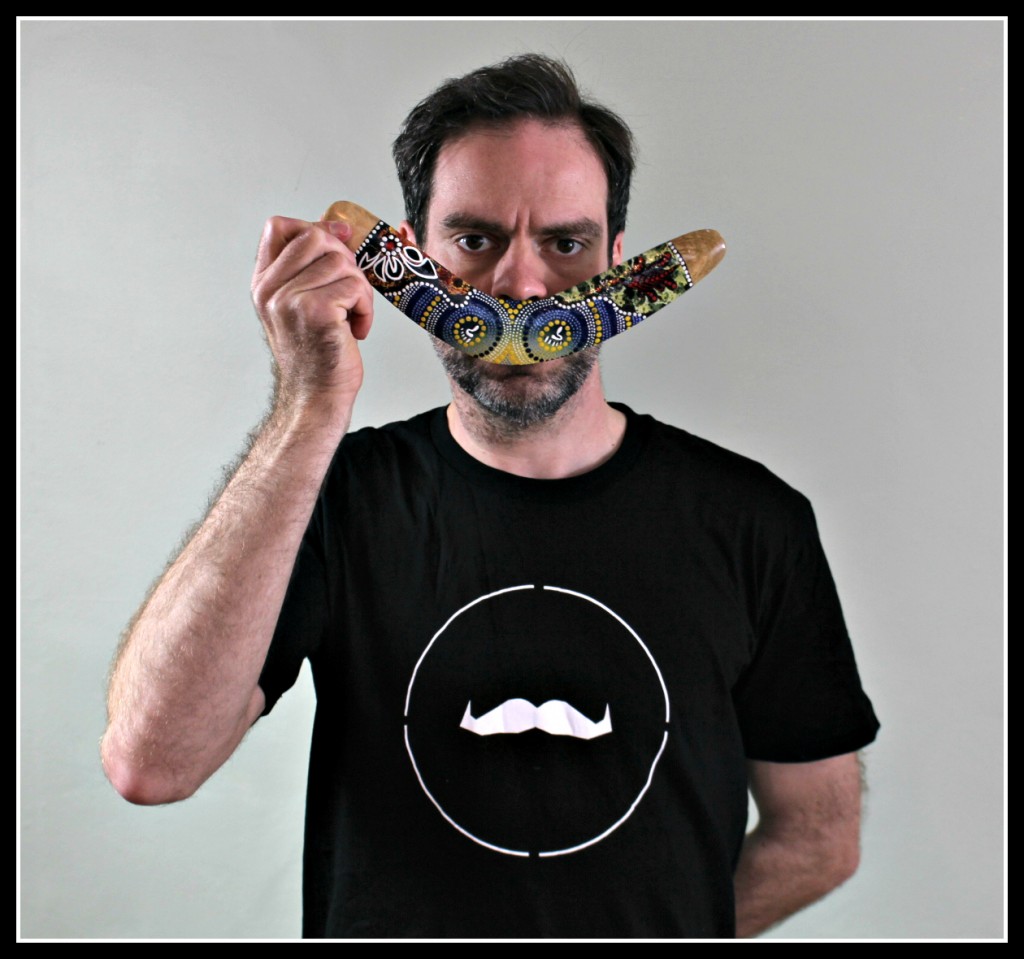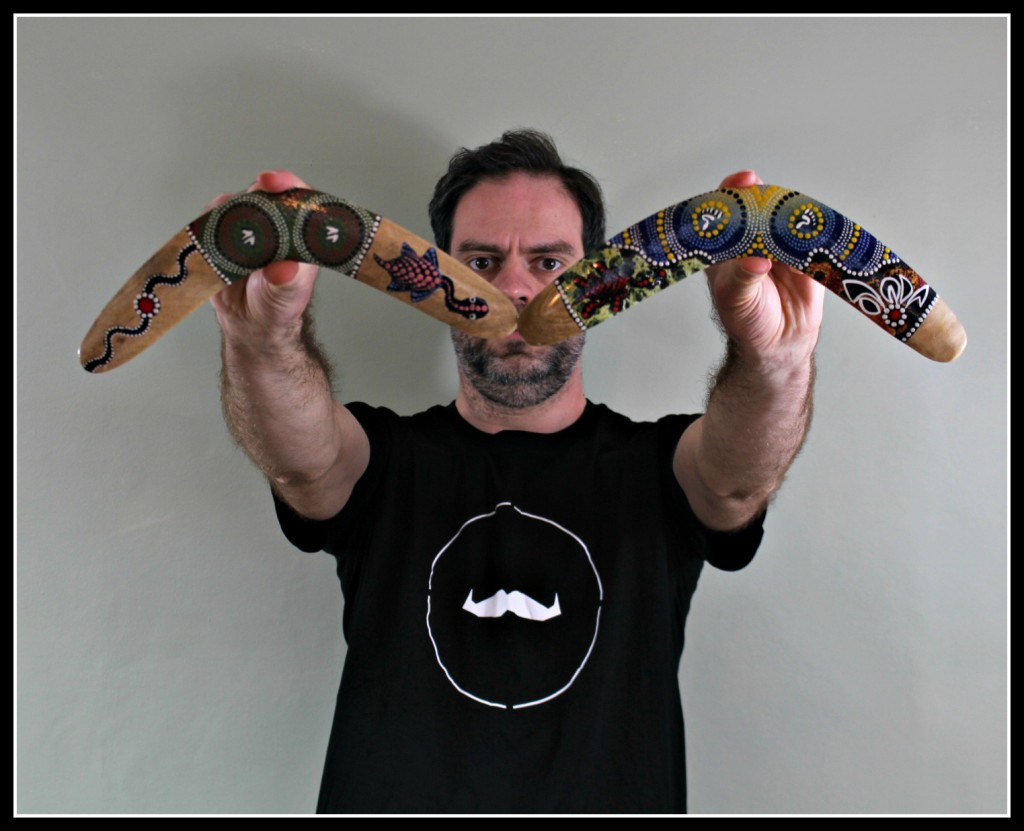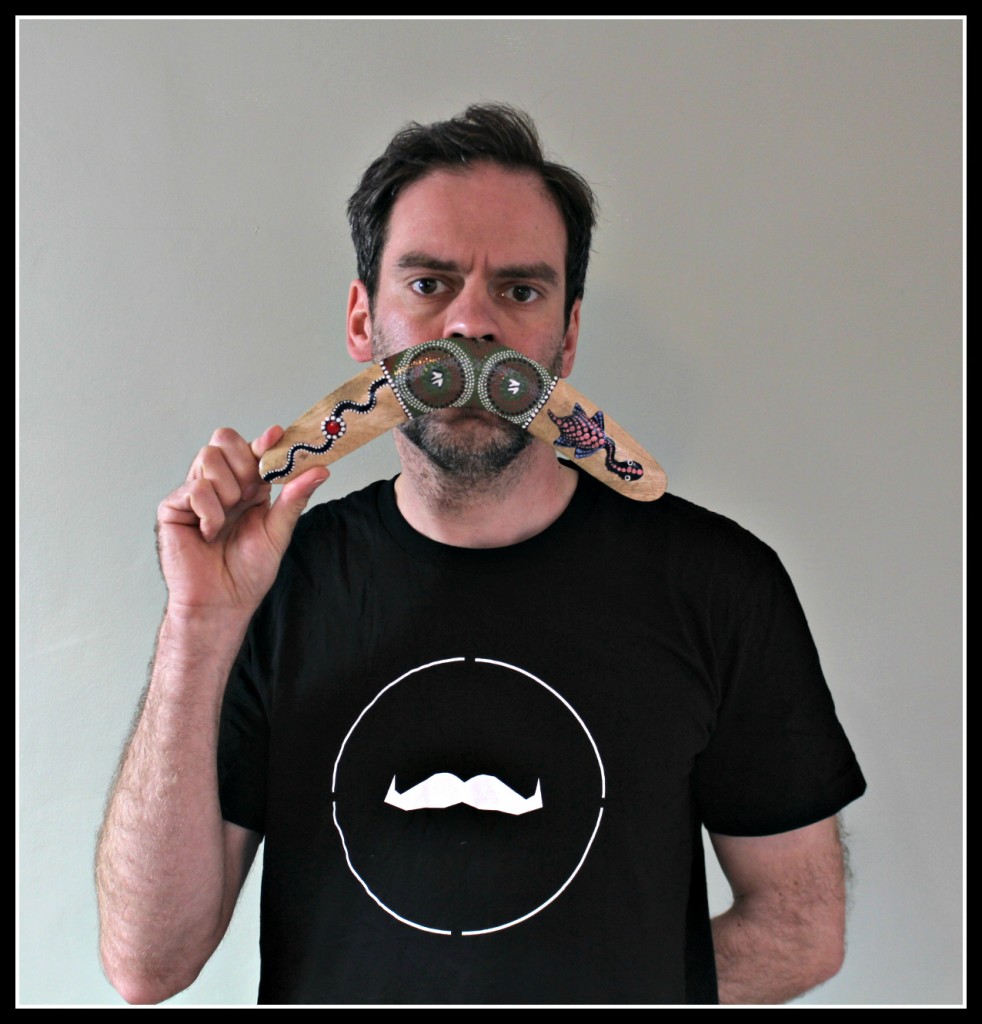
If I say Movember, what comes to mind? I’ll take a guess you probably think of men growing moustaches throughout the month of November. You may also think of testicular and prostate cancer, as much of Movember’s work goes into raising funds to highlight both these conditions and to support programmes researching treatments and cures. There is a further element to the Movember Foundation’s work. In fact there are several, but I’m going to focus on two that are linked; men’s mental health and social connectedness.
I’ve just returned from Australia where I had the great honour of assisting Movember with an international initiative it is running to support a number of innovative projects. These projects will encourage men to establish strong social connections and this, in turn, should help improve their mental health.
Why is Movember active in this field? Is men’s mental health such a big issue? It is, of course, no less important than women’s mental health but it is a huge issue. It’s a subject I’ve blogged and vlogged about in the past. The comments I’ve received after people have read these posts / watched the videos make it crystal clear that men’s mental health is something society frequently ignores. Men also need to recognise how important their mental health is and seek help when they need it.

Don’t, however, take my word for it. Over the past few years, Movember has worked with Australian charity beyondblue to research the state of men’s mental health and social connections.
Beyondblue’s research established the following;
- Just over one in three men (37 per cent) are dis-satisfied with the quality of their relationships, typically because they do not feel emotionally connected or supported
- A quarter of men have no-one outside of their immediate family they can rely on
- Only 40 per cent of men felt they were part of a community; men who feel part of a community are more likely to have stronger social support
- Age was a factor in how supported men felt; support levels between the ages of 35 and 54 were significantly lower than the younger (18-34) and older (55-65) ends of the population
- Social connectedness was simply not considered an important issue by men, nor is the link to other social issues, such as suicide or violence, readily recognised or understood and
- Men experiencing isolation or loneliness often feel like they are the only one.
The research also identified reasons why men report having poor social connections. This can include a man’s social circumstances changing when he becomes a father. There are also psychological and cultural barriers to overcome; IE, unlike women, men don’t always feel comfortable talking to friends and family about their feelings. Interestingly, men who said they had poor communication with their own fathers were more likely to have low social support.
All of this creates a horrendous cocktail. Men with poor social connections will often experience higher rates of depression and anxiety, abuse alcohol and drugs and are more likely to take their own lives. Beyondblue’s research was conducted in Australia, but to put this in a UK perspective (which is not hugely different), 76% of all suicides in the UK in 2014 involved men and it is the biggest killer of men aged 45 and under.
To address these issues, the Movember Foundation launched a campaign to find projects in Australia, Canada and the UK that could really make a difference. As a lay person, I was asked to travel to Melbourne and spend a couple of days working with a truly amazing group of people to evaluate a range of projects that need funding to grow. Our recommendations will be considered by Movember and, if successful, they will receive money to develop their ideas further.

I have experience of working in the voluntary sector but have never come across anything quite like this. The Movember Foundation went to huge lengths to put together a staggeringly diverse team of individuals to evaluate the projects. The team included a Canadian prison governor, an Australian public health specialist, a technologist and senior figures from Movember, Beyondblue and other charities.
Oh, yeah, I was also part of the team. Quite how I ended up being involved I don’t know, but all of the evaluators made exactly the same comment during the two days!
Our discussions were superbly chaired and facilitated. There was considerable discussion, debate, agreement and disagreement. Even so, all discussions were positive and there was incredible energy in the room as we deliberated.
I can’t go into details about the projects we evaluated. Suffice it so say they were incredibly diverse in nature and equally creative.
There won’t be any further progress for several months. Long term, however, I’m hoping the projects funded by the Movember Foundation prove to be very successful. I think it’s also an incredibly positive step that an international institution the size of Movember is active in the area of men’s mental health and social connectedness. It’s involvement could make a real difference in this field.
What do you think about the issue of men’s mental health? Is it considered enough by society? Why don’t men take it seriously? Please leave a comment below with your thoughts.







17 thoughts on “Movember; making a difference to men’s mental health”
Pingback: Freedom from children and family for six whole days - Dad Blog UK
Pingback: Exploring the lanes of Melbourne - Dad Blog UK
It sounds like an amazing opportunity for you & you’re with very good company. I think it’s great that the foundation wants to do more to spread to word about men’s mental health. Having worked in this area for a little while I think it’s an area which is often forgotten because men don’t naturally talk about things. It will be a slow burn but better to do something than nothing
xx
You’re absolutely correct Tracey, it will be a slow burn but having an advocate like Movember is a great thing. It’s a subject that guys need to discuss.
Really interesting read. My hubs has lost touch with most of his friends over the years and focuses so much on work and family, which is great, but I have to really encourage him to see friends and have time for him too. I know how beneficial it is for me so know it must be for him. He is close to his brothers though which is good. Sounds like a great cause and how awesome to be involved!
Very interesting you should say you encourage your OH to socialise. Women can be incredibly influential when it comes to keeping men socially connected. Keep at it!
It is a great cause John. I hope you had a fantastic time, it was amazing that you got the opportunity to go to Oz too. I am teaching my 10 year old son to talk and share his feelings at the moment. I’d like him to grow up knowing its not a sign of weakness but strength. Women naturally gather themselves a little tribe/network of supporters and confidants which men don’t seem to do. Or if they do, it’s to play a sport or go to the pub, not ‘talk’ and support. I think mental health is hugely improved if you have love and support.
Thanks Victoria. Yes, love and support are the key here, hence why the overall aim was to improve men’s social connections. Women are much better at this and don’t have the same social pressures to pretend everything is okay. Thanks for commenting.
I think it’s the terminology associated with this issue that stops a lot of men from taking this topic seriously. Phrases like ‘men’s mental health and social connectedness’ are associated with terms such as ‘wet left’, ‘special snowflake’, ‘social justice warrior’, ‘loony’, and so on. Terms that are scoffed at by ‘manly men’.
And right there is one of the biggest hurdles to overcoming this problem.
It seem that schools are doing their best to change our culture so I hope the next generation is more open to this sort of discussion.
Terms like ‘stress relief’, ‘fun’, ‘men only’, ‘no women allowed’, ‘sport’, ‘down time’, are all terms that men are more open to and are far more likely to respond to from what I’ve observed. Such terms are more likely to be effective for inspiring social involvement and environments that foster discussion or to take other action.
Men often just want results without talking about it, and giving them actions they can take to ‘fix’ their situation rather then inviting them to ‘talk about it’ is more likely to get those that are uncomfortable with the topic engaged.
I do not intend to downplay the importance and value of discussing what makes people feel blue, but only attempt to explain what I see as a huge hurdle to addressing a major problem. That those that seek to help often alienate those they are trying to help because of wording and approach. A Stoic person may never choose to discuss their challenges (don’t call it a problem!) but if different wording is used to suggest practical tools then they are more likely to implement them.
Now then, I can ‘t go into precise detail about the discussions we had. Suffice it to say that many of the issues you raise were addressed. You are quite right though, there are various barriers to men seeking help and guys can be alienated by those seeking to assist them. It merely exacerbates the issue. Very thought provoking response, thanks for commenting.
What an exciting project to be part of John! I think it is clear why you were part of the team – you are such a huge proponent for men’s rights and men’s issues and you always bring reason and research and balance to the topics you discuss. Some of the figures do make eye-opening reading. I think as a mother of two boys it is really nice to know that there are people out there trying to make a difference now so that men-kind will in future suffer less, be more socially supported and connected and less likely to suffer from depression. Good work! Thanks so much for sharing this on #thetruthabout
Very kind words Sam. If I had sons I would be very worried about their mental health. I think the big difference is that women, being more open in nature, discuss such things and are not under pressure to pretend everything is okay. The issue I think of is body confidence. It’s a growing issue for both genders, but only now are we as a society discussing the fact that more and more men are living with bulimia and associated conditions. I regularly see mums blogging about the body confidence and their daughters. Sure it’s an issue, but focus on your daughters at your son’s peril! Thanks for hosting such a great linky.
Hi John,
It was a pleasure having you on the panel. We selected you because we knew you would bring great insights, and indeed you did! We’re looking forward to the next steps and seeing how all the amazing projects develop. It is such an important issue and exciting to see so many great minds come together find innovative solutions.
Thank you for your time, it was an absolute delight having you involved.
Therese Fitzpatrick
Global Director – Mental Health
Movember Foundation
Thanks for commenting Therese. It was amazing to be a part of the process and I hope I can continue to play a part. The work you and your Movemeber colleagues are doing is fantastic and I support it with all my heart. Thank you for asking me to be involved, it was an honour.
This is a wonderful platform to write, talk and discuss about Men’s Health . This aspect of Health has never been discussed before and we men also tend to generally keep quite about it. But, now a days times and perceptions are also changing. Men are being urged to go and talk it out with someone specially counsellors . This is exactly what we are also saying back in India, that you should not keep it within yourself and choke yourself but rather you should go and talk to someday about whatever issues or concerns that are troubling you or else you can also visit us online at http://www.drsafehands.com
Thanks for commenting and glad you found the post useful.
It a subject I hold close to my heart. I suffer from a mental health issue and I’ve come to terms with it and don’t mind speaking about my experiences. I have took part in Movember for 2 years and I’ll be participating in it this year too.
My question is why do men keep issues locked away. I don’t believe in the stigma I believe in who your friends and family are. In confidence. I have a very good friend who is 15 years older then me. But he is my best mate. He had always been there for me and I can go to him to talk about problems. I also have very supportive family so talking about my issues is made that little bit easier for me.
Yes I know not everyone has this support but if they did would it make it easier for men to speak up?
Speak up before it’s too late. Maybe I wouldn’t be here if it wasn’t for my son and partner. That support I have is the most important thing.
I admire you for supporting men’s mental health and we need more men to speak up. Anything I can do to help I’m the future please let me know.